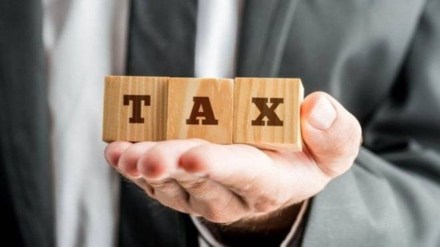By Shuddhasattwa Ghosh
The Hon’ble Finance Minister is to present the budget on 01 February 2025. Among all the class of taxpayers, the individual taxpayers await the budget with a hope that the government would introduce tax reliefs which will leave more income in the hands of the individual for consumption spends.
One of the key expectations for Budget 2025 is a revision in the basic exemption limit to INR 5 lakh under the Concessional Tax Regime (CTR). I is also expected that the government will review the overall existing tax rates under both the old tax regime and the CTR.
The government in the tax year 2021-22 introduced the provision to consider the employer contribution to retirement funds (provident fund, superannuation and National Pension System) in excess of INR 7.5 lakh per year and accretions thereon, as taxable in the hands of the employee. However certain areas such as identification of fund to be considered for the purpose of considering such excess and methodology to compute accretion is yet to be clarified. It is expected that the government would address the same in the upcoming budget.
Under the existing provisions, if any person pays any amount to the non-resident individual which is chargeable to tax in India, the person is required to deduct the tax and undertake the TDS compliances to report such tax deducted amount in the account of non-resident individual. Where the non-resident individual considers that the tax should not be deducted, an application is required to be filed to obtain a certificate from tax officer for lower or NIL tax deduction. It is expected that the government would either re-look at the tax rate while making payment to non-resident individual or streamline the compliance process for obtaining the certificate and/ or reporting of tax so deducted.
Currently, where an individual receives any sum of money more than INR 50,000 as gift or without any consideration, the whole of such amount is considered as taxable in the hands of the individual. It is expected that the government will re-look at the same and increase the threshold to INR 1,00,000.
Unlike the scrutiny proceedings, there is no fixed timeline prescribed under the Income-tax Act, 1961 for disposal of appeals. There are instances where the appeal filed for the tax year 2015-16 is still under progress. This causes undue hardship on the taxpayers as the refund for the non-disputed years are at times adjusted with the tax demand determined in the year for which appeal is filed. It is expected that like the scrutiny proceedings, the government would prescribe a specific timeline for disposal of the appeals or undertake steps which ensures that the taxpayers are safeguarded from the undue hardship due to delay in disposal of appeals.
Electric vehicle is a well-recognised green initiative. Currently, no specific perquisite valuation mechanism is provided for electric vehicles under the Income-tax Act. It is expected that the government will provide clarification for perquisite valuation for electric vehicles provided by employer to employee.
The above-mentioned changes are some of the key expectations by the individual taxpayer. Fulfilment of the same would provide tax relief as well as procedural clarity and would be much-appreciated.
The writer is Tax Partner, EY India.
